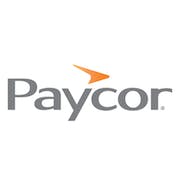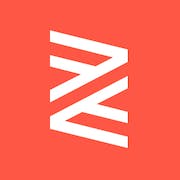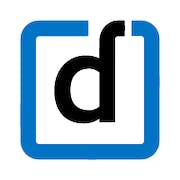Looking for reliable payroll software? Our comprehensive buyer's guide has got you covered. Compare top options and make an informed decision. Click here to find the best payroll software for your business.
Tired of manually handling tasks such as attendance and time tracking, vacation days, and sick leaves? Or maybe lacking a dedicated team to manage this process? Payroll software is here to help.
Used by businesses of all sizes and industries to streamline and automate traditional payroll operations, it has become an essential tool in today's fast-paced world. If you are considering a payroll solution (good choice!), but don't know where to start yet, this buyer's guide will make your journey easier. Read on as we discuss the key features and benefits it can offer your organization and vital points to consider before investing into one.
What is payroll software, and why does my business need it?
Payroll software is a type of software specifically designed to streamline and automate traditional payroll processes, including managing wages, salaries, bonuses, and deductions. With a payroll solution businesses no longer need to manually handle tasks such as attendance and time tracking, vacation days, and sick leaves, as well as calculating different types of payroll taxes and remitting payments to the government.
Payroll platforms are commonly used by businesses of all sizes across different industries, from small startups to large corporations. They are especially beneficial for those who lack a dedicated human resources team or have limited resources to manage payroll manually.
A 2019 survey revealed that 52% of employers outsource payroll tax processing, while 48% do it in-house. If you’re in the latter (in-house) group, you know that payroll tax processing can be chaotic without a detailed guide, especially at year-end. But with so many options and payroll providers on the market, it can be overwhelming to choose the best payroll software for your organization. In this buyer's guide, we will delve deep into the key factors to consider when selecting a payroll tool and highlight some of the best options available to make your journey less daunting.
Before we move on to the key features and benefits of payroll software, here are some common use cases of payroll tools:
- Automating payroll: Payroll tools automate the process of calculating employee wages, withholding taxes, and deducting deductions. This significantly reduces the risk of human error and ensures compliance with various regulations.
- Payroll tax compliance: It helps businesses stay up-to-date with federal, state, and local taxes, including tax deductions, filing forms, and making payments.
- Employee self-service: Most solutions offer a self-service portal where employees can access their payslips, tax forms, and other important payroll documents.
- Time tracking: The software can be integrated with time-tracking tools to track employee hours worked and calculate pay based on hours worked, overtime, and paid time off.
- International payroll: Some payroll providers offer international payroll processing, making it easier for businesses to manage global payroll operations.
Top benefits of payroll software
Payroll software is an essential tool for businesses of all sizes in today's fast-paced world and has become a popular choice for many companies. Below are some reasons why payroll software is important for businesses:
- Accurate and efficient: Payroll software automates the process of employee salary calculation, tax deduction, and other related tasks, making it easier to avoid unnecessary errors and reducing the risk of payroll inaccuracies.
- Time-saving: It saves time by automating the manual process of calculating employee salaries, leaving more time for employees to focus on more productive tasks.
- Cloud-based operations: Cloud-based payroll system is an easily accessible platform where employees can access their payroll anytime and anywhere, and the HR manager can handle the company's payroll from remote locations.
- Cost-effective: Payroll tools help reduce the cost of payroll management for businesses by identifying and minimizing unnecessary expenses while automating most tasks that would require manual labor.
- Compliance with regulations: Payroll solutions ensure compliance with government regulations, which is critical to avoid penalties and legal issues in the future.
- Efficiency in tax filing: It automates the payroll tax filing process, making it easier to manage employee taxes and generate accurate tax reports and forms.
Overall, payroll software is a critical component of any business, making payroll tasks easier, accurate, and efficient.
10 key features of payroll software
Whether your business is just starting out or looking to upgrade your current payroll system, it's important to understand the key features and benefits of payroll software. By automating payroll management, businesses can focus on growing their core operations, attracting and retaining top talent, and increasing profitability. The software helps them save time and money while also ensuring compliance and accuracy. So, what are the key features of payroll services?
- Automated payroll processing: With payroll software, you can automate the entire payroll process, from calculating employee wages and taxes to distributing paychecks and pay stubs. This can save you time and reduce the risk of errors.
- Direct deposit: Many payroll solutions offer direct deposit, allowing you to pay your employees electronically and eliminating the need for paper checks.
- Tax calculation and filing: Payroll tools can calculate your payroll taxes and generate the necessary reports and forms for tax compliance.
- Employee self-service: Many payroll software providers offer an employee portal where employees can view their pay stubs, update their personal information, and access other relevant information.
- Customizable reporting: It's easy to generate a wide variety of reports, such as tax and payroll reports or labor distribution reports. Additionally, most solutions allow you to customize reports to meet your specific business needs.
- Time and attendance tracking: Some payroll software includes built-in time and attendance tracking, allowing you to manage and monitor employee work hours, overtime, and time off requests.
- Affordable pricing: Payroll platform is typically more affordable than outsourcing your payroll to a third-party provider. Additionally, many solutions offer flexible pricing options based on the size of your business and the features you need. Depending on your business’s size (as well as which payroll software you choose), your monthly payroll costs could be as low as $0 or higher than $1,000.
- Mobile access: Many payroll providers offer mobile access, allowing you to manage your payroll remotely from your smartphone or tablet.
- Compliance support: Payroll software often includes compliance support for state and federal labor laws, helping you avoid costly fines and legal issues.
- Scalability: The tools can grow with your business, allowing you to add or remove features as needed, depending on your changing needs.
5 things to consider before investing in payroll software
Investing in payroll software can be a game-changer for businesses. However, it is important to understand and consider several factors before making a purchase decision.
Firstly, evaluate your entire payroll process and identify a tool that meets the organization's requirements. Understanding what is required to support payroll operations is crucial. This can involve considering if the software supports direct deposit, payroll taxes, time tracking, and employee benefits (e.g., health insurance) administration.
Secondly, the size and complexity of the organization is another essential factor to consider in deciding which software to purchase. Large organizations will require more complex payroll systems that can handle numerous employees, deductions, and filings. Small businesses may not require such an intricate payroll system and can instead opt for more cost-effective solutions.
Thirdly, the level of security and compliance afforded by the payroll solution should be evaluated. The confidentiality and security of payroll information is essential, and organizations should select software that provides adequate measures to protect and secure sensitive data.
Fourthly, businesses must consider the scalability of the payroll solution they are interested in. As the business grows, the software must be able to expand to support the company's future growth.
Lastly, check the level of customer support provided by the vendor. Customer support for payroll app can be critical for resolving problems quickly. The availability of comprehensive support can significantly impact the company's experience with the software.
Organizations should carefully consider several factors before investing in payroll platform. By assessing the current payroll process, the size and complexity of the organization, the level of security and compliance provided, the scalability of the solution, and the level of customer support offered, businesses can make an informed decision on the right payroll tool that meets their overall needs.
5 software trends for payroll processing in 2024 and beyond
As businesses continue to adapt to post-pandemic work environments, payroll has become a powerful tool for supporting remote work, accommodating alternative payment models, and providing employees with faster access to pay-related information. Here are five payroll software trends to watch out for in 2024 and beyond:
- Increased pay: With the cost of living rising, employees are pushing for higher pay rates. Employers need to be prepared to keep their labor force satisfied by offering competitive compensation plans.
- Faster payroll processing: Timely reporting is crucial for any business, and quicker processing capabilities from payroll software provide just that. Employers need to ensure that their payroll systems are efficient and fast to meet their financial obligations.
- On-demand pay: Employees are increasingly interested in having more control over their finances. One solution is a payroll tool that provides immediate access to earned wages. On-demand pay supports employees' financial wellness and promotes a sense of trust between the employer and employee.
- Creative compensation plans: A creative way of lowering the financial burden on employees can be providing employee benefit accounts, which help put more money in their pockets. Employee benefit accounts are tax-free, employer-funded accounts for healthcare, education, commuting, and other expenses.
- The gig economy: In a world where the gig economy continues to grow, supporting gig workers is essential for any business. Employers need to adapt their payroll systems to manage and track payments to both permanent and gig workers to ensure compliance with regulations and reduce their administrative workload.
In conclusion, payroll software has become an essential tool for businesses of all sizes. Its features can save you time and ensure compliance with tax and labor laws while avoiding unnecessary errors. When selecting a payroll service, consider the features that are most important to your business and choose a tool that aligns with your needs.










